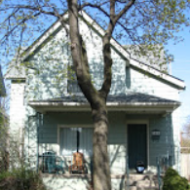I don’t know whether it is possible to understand the protests of the current moment as a single, country-wide, thing. We know that there are those protesting police brutality, those who are inciting violence to incite more police brutality, those there to loot, and there are those who are just there because they have had enough.
It strikes me that the protests across the United States are very different from each other. But there is one commonality that has been made very clear: the collective response from the police.
Mere weeks ago, police showed remarkable repose as men with automatic-weapons walked around inside various state capitols and yelled in their faces. This week, we have seen night after night of police engaging in horrendous violence. Police cruisers drove into crowds. Journalists were shot at directly with non-lethal ordnance. Non-violent protesters were kettled and tear-gassed. Police murdered more black men.
There has been so much trauma this week in a nation that will not be allowed to grieve.
❦In 2016, I took up a seat in a bus of mostly women who went down to the Women’s March in Washington DC to show solidarity. When I returned, I got a call from the local CBC affiliate asking for comment in regards to public statements made by certain members of our community who called us “dumb bitches” for getting involved in another country’s politics. It was as if these people did not see that we might have common cause with those women suffering in the United States.
To protest in Canada in this moment is to show sympathy with those suffering mightily in the United States. But to protest in Canada in this moment is also making a declaration that black Canadians also have a common cause in suffering from generations of systematic racism that many white Canadians refuse to see.
Canadian police perpetuate that systematic racism. From under-policing when it comes to missing indigenous women, to over-policing when it comes to black bodies, our police — much too frequently — serve power before its community.
For years, Canadian researchers and activists have been calling for the divestment of our police services and re-investing those funds into housing and other social services sorely lacking from our communities. This moment should be their moment. But white Canadians won’t let it because they will not equate what’s happening in the United States with what is happening here because they refuse to see it.
❦On Tuesday, many Canadians posted black squares on their social media streams in solidarity with #BlackLivesMatter.
I would suggest that each Canadian who posted a black square on their social media to ask themselves, what percentage of their taxes go to police? Then, would I ask them to look up the budget of where they live to see what that percentage really is.
I know it sounds like a lot of work but it really isn’t. I found the answer in a couple of minutes on this handy chart on page 7 of Windsor’s 2020 Budget.

The largest percentage of our property tax — 21% — goes to our police services. It’s three times as much as the money we allocate to community development and health services.
In Canada:
— Ameil J. Joseph (@ajesusjoseph) June 3, 2020
15.1 billion $ on policing in a year (prov/fed)
5 billion $ on prisons in a year
…..
13.4 billion OVER 10 YEARS on federal programs for housing affordability.
Since we are experiencing a global pandemic and a historically low crime rate, I believe that this is the perfect time for us to divest from police services and to invest in housing and other social services. I realize that to state it so clearly, in this moment, invites accusation of demanding retaliation.
But I am not looking for retaliation. We want justice and peace.
